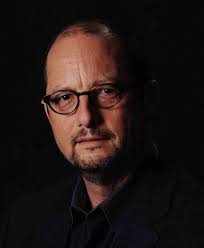Not long ago I came across an incredible story
about a Colorado boy, Robby Smith. On March 3, 2009 Robby was just a toddler
when he fell into a creek near his house. It just so happened that when the
emergency call was placed that that a fire engine was passing right by the
creek where Robby was drowning. When rescuers arrived, Robby was unconscious
and hypothermic. His life was hanging by a thread. Amazingly, first responders
were able to resuscitate Robby with CPR and rescuers got him to the hospital
where he fully recovered.
Now, several years later as an eight-year old,
Robby told his mother that he wanted search for the brave men and women who
saved his life that day. Robby was reunited with the team who pulled him from
the creek and standing before them with tear-filled eyes the boy said, “I just
wanted to say thank you, because of you I am alive today.” One of the firemen
who was interviewed commented that this was the first instance he could
personally recall of a rescue victim coming back just to say, “Thanks.”[1]
Robby and team who rescued him.
A future firefighter?
Robby didn’t have to work himself into a thanksgiving
mode, because he understood what it was like to be saved from death. How much
more should this kind of gratitude apply to us, as those who have been saved
from sin and Satan by our Lord Jesus. Gratitude is the firstborn child of grace.
When was the last time you knelt before your Lord and said, “Jesus, I don’t
want to ask you for anything today, I just want to thank you for saving a
sinner like me.”
In Colossians 1:12-14 Paul makes the
connection between our experience of grace and our expression of gratitude, “Giving thanks to the Father, who has
qualified you to share in the inheritance of the saints in light. He has
delivered us from the domain of darkness and transferred us to the kingdom of
his beloved Son, in whom we have
redemption, the forgiveness of sins.” (emphasis mine)
What could be better than to be plucked from
the fire, born-again, forgiven from sin and heaven-bound? Too many times we
forget that as God’s blood-bought church we are wealthier than the Wall Street
fat cats. Spiritually, we are co-heirs with Christ and recipients of a heavenly
inheritance that cannot be taken away by disaster, depression, disease or even
death.

When you received Christ,
you became a stockholder in the riches of heaven and the benefits are out of
this world! In an instant, you received a redeemer in heaven and the promise of
a residence in heaven, a resurrection body in heaven and one day, a glad
reunion in heaven.
Donald Whitney wrote in his book Spiritual Disciplines: “God has never
done anything greater for anyone, nor could He do anything greater for you,
than bring you to Himself. Suppose He put ten million dollars into your bank
account every morning for the rest of your life, but He didn’t save you?
Suppose He gave you the most beautiful body and face of anyone who ever lived,
a body that never aged for a thousand years, but then at death He shut you out
of Heaven and into hell for eternity? What has God ever given anyone that could
compare with the salvation He has given to you as a believer? Do you see that
there is nothing God could ever do for you or give to you greater than the gift
of Himself? If we cannot be thankful to Him who is everything and in whom we
have everything, what will make us grateful?”[2]
[1]
NICOLE PELLETIERE, “Boy Seeks First Responders Who Saved His Life as a Toddler
to Thank Them,” ABC NEWS, 23 February
2016 <http://abcnews.go.com/Lifestyle/boy-seeks-responders-saved-life-toddler/story?id=37117751>
[2]
Donald Whitney, Spiritual Disciplines for
the Christian Life (Colorado Springs: NavPress, 2014), 146.


